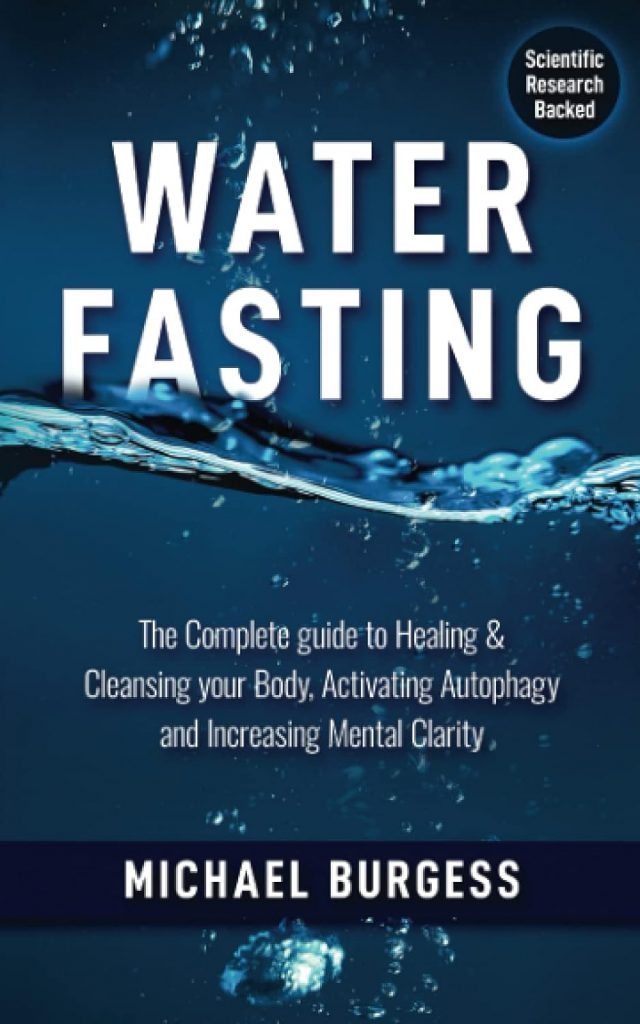In recent years, the concept of fasting, particularly water fasting, has gained significant attention in the health and wellness community. Among various fasting methods, the 72-hour water fast stands out as a unique and challenging approach. This fast involves abstaining from all food and caloric beverages for a continuous period of 72 hours, relying solely on water for hydration.
This practice is rooted in historical and cultural contexts, often associated with spiritual and religious rituals. However, its adoption in contemporary health and wellness circles is primarily due to its purported health benefits. Proponents of the 72-hour water fast claim it offers numerous advantages, including detoxification, improved metabolic functions, enhanced mental clarity, and even a boost in the body’s natural healing processes.
Despite its growing popularity, the 72-hour water fast is not without its challenges and potential risks. It requires significant mental and physical preparation, and is not suitable for everyone. Understanding these risks, alongside the potential benefits, is crucial for anyone considering this fasting method.
Here I aim to provide a comprehensive overview of the 72-hour water fast, exploring its history, the claimed benefits, the challenges faced during the fast, and important safety considerations. Whether for health, spiritual, or personal reasons, understanding the intricacies of this fasting method can help individuals make informed decisions about their health and well-being.
The Background and The Popularity of the 72-hour Water Fast

The concept of a 72-hour water fast, where one abstains from consuming anything except water for a period of 72 hours, has historical, cultural, and health-related roots.
Historical and Cultural Background
Fasting for extended periods is a practice that has been observed in various cultures and religions for centuries. In many ancient civilizations, fasting was seen as a way to purify the body and mind, and it often had spiritual or religious significance.
For example, fasting is a common practice in religions like Christianity, Islam, Hinduism, and Buddhism, each with its own unique traditions and rules regarding the fast.
Health and Wellness Movements
In more recent times, extended fasting, like the 72-hour water fast, has been adopted in health and wellness circles. This shift is often attributed to the growing interest in detoxification, body cleansing, and the potential health benefits of fasting.
The idea is that by abstaining from food for a certain period, the body gets a chance to rest and detoxify, potentially leading to improved health outcomes.
Scientific Research and Medical Use
Scientific research on the effects of fasting has shown that it can have various health benefits, although these are still being studied and understood.
Some studies suggest that fasting can improve metabolic health, aid in weight loss, and even have a positive impact on longevity and aging – and also on brain metabolism. According to one study fasting for 74 hours can even reset your entire immune system.
However, these benefits can vary greatly among individuals and depend on the overall context of the fast, such as the person’s health status, the duration of the fast, and how it’s conducted.
Popularization in Modern Society
The 72-hour water fast has also gained popularity through media, books, and online platforms, where health influencers and wellness advocates promote its benefits. This has led to a wider audience trying out such fasting practices, often as part of a lifestyle change or health challenge.
72-hour Water Fast – Advantages and Disadvantages

A 72-hour water fast, where you consume only water for three days, can have several potential effects on your body, both positive and negative. It’s important to note that before undertaking any prolonged fasting, you should consult with a healthcare professional, especially if you have pre-existing health conditions.
Advantages
Here are some of the suggested advantages with a 72-hour water fast:
Ketosis and Fat Burning
Typically, after about 12 hours without food, the body enters a state called ketosis, where it starts to burn stored fat for energy. A 72-hour fast can deepen this state, potentially leading to more fat burning.
Autophagy
Extended fasting can stimulate autophagy, a process where cells clean out damaged components. This is believed to have several health benefits, including improved cellular function and potentially a reduction in the risk of certain diseases.
Mental Clarity and Emotional Effects
Some people report experiencing enhanced mental clarity and emotional balance after overcoming the initial hunger phase of a fast. However, responses can vary widely among individuals.
Reduced Inflammation
Fasting might help in reducing inflammation in the body, which is associated with several chronic diseases.
Impact on Blood Sugar and Cholesterol Levels
Fasting can affect blood sugar levels and may improve cholesterol profiles by reducing levels of LDL cholesterol (often termed “bad” cholesterol) and increasing HDL cholesterol (the “good” cholesterol).
Immune System Reset
Some research suggests that prolonged fasting might “reset” parts of the immune system, though more research is needed in this area.
Risks and Negative Effects
Extended fasting can also have negative effects, especially for those with certain health conditions or nutritional deficiencies. Risks include dizziness, weakness, electrolyte imbalance, and in severe cases, organ damage. It’s crucial to monitor your health during a fast and stop if you experience adverse symptoms.
Psychological Effects
The psychological challenge of a prolonged fast should not be underestimated. It requires significant mental discipline and can cause mood swings, irritability, and a preoccupation with food.
Impact on Metabolism
While some believe that fasting can boost metabolism, others argue that prolonged fasting can actually slow it down as the body tries to conserve energy.
Gastrointestinal Effects
Restarting eating after a prolonged fast needs to be done carefully to avoid gastrointestinal distress.
Remember, while fasting can have benefits, it’s not suitable for everyone and can be dangerous if not done correctly. It should not be undertaken by pregnant or breastfeeding women, children, or people with certain medical conditions without medical supervision.
Read more: The trending Ashwagandha
Read More About Water Fasting:







